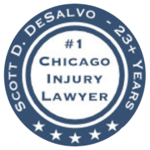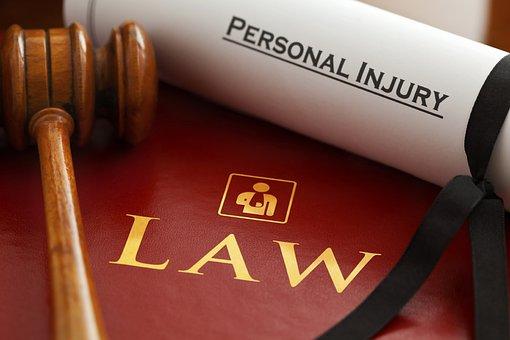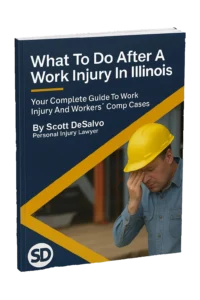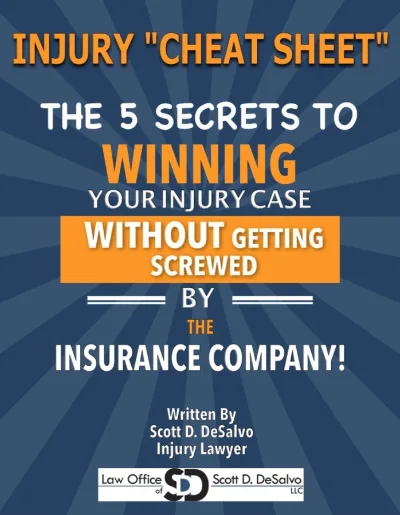




Three years ago, I got a desperate call at 11 PM. It was from a construction worker named Jose who'd fallen three stories at a job site near Navy Pier. He'd shattered his back in the fall, couldn't work, and—get this—the insurance company was already playing games with his workers' compensation claim. They were denying parts of it before he even got out of the hospital.
Jose was panicked. Terrified about losing his house in Bridgeport. Worried sick about how he'd support his wife and two kids while he recovered.
That call reminded me exactly why I became a Chicago workers' comp lawyer.
By the way, we got Jose every penny he deserved under the Illinois Workers' Compensation Act. But we didn't stop there. We also went after the general contractor for their negligence and got Jose a $287,000 settlement that changed his family's life forever.
Here's the thing: if you've been injured at work anywhere in Chicago—whether you're on the South Side, working construction in River North, driving a truck through O'Hare, nursing at Northwestern Memorial, or working in a warehouse in Clearing—I understand the fear you're feeling right now.
The bills keep coming. Your employer's acting weird. The insurance adjuster is asking tricky questions. You're lying awake at 3 AM wondering: "Will I ever work again? How will I support my family? What if they deny my claim?"
I get it. I've been there with thousands of injured Chicago workers just like you.
Here's what I want you to know: Under Illinois workers' compensation law, you have rights. Real rights. And I'm here to make sure you get every single benefit you're entitled to.
No money out of pocket. No fee until we win your case. You can call me anytime—24/7/365—even at 2 AM if that's when you need help. I mean it.
Pretty good deal, right?

Look, Illinois has what's called a "no-fault" workers' compensation system. That's supposed to mean you automatically get benefits when you're hurt at work, right?
Wrong.
Here's the reality nobody tells you: insurance companies will do everything in their power to delay, deny, or minimize your workers' comp claim. They have entire teams of lawyers and claims examiners whose only job is to pay you as little as possible.
That's where I come in. That's where your fight becomes my fight.
The Illinois Workers' Compensation Commission has strict deadlines. You must report your work injury within 45 days. Your claim must be filed correctly with all the right paperwork. One mistake—just one missed deadline—and you could lose thousands of dollars in benefits or have your entire claim denied.
I handle all the paperwork. I meet every deadline. I make sure your rights are protected from day one. No screw-ups. No do-overs. Just done right the first time.
Insurance adjusters are trained—actually trained in classes—to get you to say things that hurt your workers' comp claim. They'll call you when you're stressed, in pain, or on medication. They'll ask what seem like innocent questions, but they're designed to trap you into admitting something that damages your case.
When you hire me as your Chicago workers' comp lawyer, you never talk to the insurance company again. Ever. I handle all communication. That means they can't trick you, manipulate you, or twist your words against you.
Most injured Chicago workers have no clue what benefits they're actually entitled to under the Illinois Workers' Compensation Act. The insurance company is betting you don't know, either.
Here's what you should be getting:
Insurance companies are counting on you not knowing about all these benefits. I make sure you get every single one you're entitled to. That's my job.
Has your workers' comp claim been denied? That happens all the time—and it doesn't mean your claim is weak, invalid, or hopeless. It usually just means the insurance company is testing you to see if you'll give up and go away.
Don't.
I've successfully appealed hundreds of denied workers' compensation claims at hearings before the Illinois Workers' Compensation Commission. I know the arbitrators at the Chicago office downtown at 100 W. Randolph. I know the law inside and out. And I know how to win your case.
I Handle Third-Party Claims (The Cases That Can Make You Real Money)
Sometimes your work injury isn't just a workers' comp case. If defective equipment, a negligent subcontractor, a property owner, or another third party caused your injury, you may be able to file a personal injury lawsuit in addition to your workers' comp claim.
For example, if a defective forklift at your Amazon warehouse job causes your injury, we can pursue the manufacturer in a product liability case while also getting your workers' comp benefits. If you're hurt on a construction site because of another contractor's negligence, we can go after them too.
These third-party cases often result in settlements that are five to ten times larger than workers' comp alone. I've recovered millions of dollars for injured Chicago workers through third-party claims.
I've represented injured workers in every industry across Chicago. Here are the most common work injuries I handle—and some real results I've gotten for my clients.
Chicago's construction boom means thousands of workers face daily risks on job sites from the Loop to Lincoln Park. I've successfully handled workers' comp claims for:
Real Result: $430,000 settlement for an ironworker who fell from scaffolding at a River North construction site, suffering severe back and shoulder injuries that required two surgeries.
Real Result: $265,000 for a carpenter in Pilsen who suffered a traumatic brain injury when struck by falling debris at a West Loop job site.
These are hands-down the most common workplace injuries in Chicago, affecting workers in every single industry—from warehouses to hospitals to offices:
Real Result: $195,000 settlement for a warehouse worker in Clearing who suffered three herniated discs lifting heavy boxes at a UPS facility.
Real Result: $340,000 for a nurse at Northwestern Memorial who developed severe back injuries from repeatedly lifting and transferring patients.
Chicago is one of the biggest transportation hubs in the country, and truck drivers face unique challenges and dangers:
Real Result: $285,000 for a truck driver injured in a loading accident at a warehouse near Midway Airport.
Real Result: $175,000 for a FedEx driver who suffered severe shoulder and neck injuries in a rollover accident on the Kennedy Expressway.
Not all work injuries happen in one dramatic accident. Some develop over months or years of doing the same motions over and over:
These cases can be tricky because the insurance company will fight you tooth and nail, arguing your injury isn't really work-related. I know how to prove these claims and win.
Real Result: $125,000 for an Amazon warehouse worker who developed severe bilateral carpal tunnel syndrome from repetitive scanning and packing.
Exposure to hazardous materials or conditions at work can cause serious illnesses that develop over time:
Under the Illinois Occupational Diseases Act, you may be entitled to benefits even if your symptoms didn't appear until years after the exposure. These cases require a Chicago workers' comp lawyer who knows what they're doing.
I've represented injured workers in virtually every Chicago industry. Here are just some of them:
Healthcare Workers: Nurses, CNAs, and hospital staff at Northwestern, Rush, University of Chicago Medical Center, Advocate hospitals (back injuries from lifting patients, needle sticks, patient assaults, slip and falls)
Warehouse Workers: Amazon, Target, UPS, USPS facilities throughout Chicago and the suburbs (forklift accidents, falling merchandise, repetitive stress injuries, loading dock falls)
Manufacturing: Factory workers at plants throughout Cook County (machinery accidents, chemical exposure, crush injuries, repetitive motion injuries, amputations)
Retail: Grocery stores, big-box retailers, shopping malls (slip and falls, customer assaults, lifting injuries, repetitive stress)
Hospitality: Hotel and restaurant workers throughout downtown Chicago (kitchen injuries, burns, cuts, slip and falls, lifting injuries)
City of Chicago Employees: Municipal workers, streets and sanitation, water department, parks district (the City is self-insured, which creates unique challenges—but I know how to handle them)
Airport Workers: O'Hare and Midway employees (baggage handlers, security staff, maintenance crews, ground transportation workers)
Transit Workers: CTA, Metra, and Pace employees (bus and train accidents, assaults by passengers, repetitive stress injuries, slip and falls)
Office Workers: Administrative staff, call center employees, IT workers (carpal tunnel, back injuries from sitting, slip and falls, ergonomic injuries)
No matter what industry you work in or how you got hurt, if it happened on the job in Chicago, I can probably help you. Give me a call and let's talk about it.
Understanding the process takes away some of the anxiety and helps you make better decisions. Here's how it works:
This is critical: tell your employer about your injury right away—the same day if at all possible. Under Illinois law, you must report within 45 days, but waiting even a few days can hurt your workers' comp claim.
Report it in writing if you can. If you report verbally to your supervisor, follow up with an email or text message confirming the date, time, and details of your injury. Keep a copy for yourself.
Don't let your employer talk you out of reporting it. Don't let them tell you "just see how you feel tomorrow" or "let's wait and see if it gets better." Report it now. Protect yourself.
Seek medical care immediately—the same day of your injury if possible. Your employer may send you to a specific doctor initially. That's legal in Illinois, and you should go see their doctor.
But here's what most workers don't know: after you've seen the company doctor, you have the right to choose your own physician for all future treatment. You can switch to a doctor you trust.
Important: Keep going to all your scheduled medical appointments. Missing appointments or gaps in treatment give the insurance company ammunition to argue your injury isn't serious or you must be feeling better.
This is where having an experienced Chicago workers' comp lawyer makes a huge difference. The Application for Adjustment of Claim (that's the official form called "Form 45") must be filed with the Illinois Workers' Compensation Commission within three years of your injury.
But you don't want to wait three years. You want your benefits now.
I handle all the paperwork for you. I make sure it's filed correctly, on time, with all the supporting documentation the Commission needs to process your claim quickly.
Once your claim is filed, you should start receiving:
If the insurance company isn't paying what they should, we escalate immediately. We don't wait around. We don't play games. We demand they follow the law.
Settlement: Many workers' comp cases settle through negotiation. The insurance company makes an offer. We evaluate it based on your medical records, your wage loss, your permanent restrictions, and what similar cases have settled for. Then we either accept it or counter-negotiate for more money.
I never—and I mean never—recommend you settle your case unless you're getting full, fair value for your injuries. Period.
Hearing: If we can't reach a fair settlement, we request a hearing before an arbitrator at the Illinois Workers' Compensation Commission. I've tried hundreds of these hearings and I have an excellent track record winning them.
The Commission has offices throughout Illinois. Most Chicago workers' comp cases are heard at the downtown Chicago office at 100 W. Randolph Street (my office is literally across the street, by the way).
Benefits come in different forms depending on your situation:



Look, I'm not going to tell you I'm the only good workers' comp lawyer in Chicago. That would be ridiculous. There are other good lawyers out there.
But I will tell you this: I'm a different kind of workers' comp lawyer. And here's why.
When I was nine years old, my father was catastrophically injured at work. He was a truck driver and a Teamster. Still a young man at the time. But that injury took everything from him—his ability to work, his income, his health, his future.
The injuries to his neck, back, and spine were permanent. They changed his life forever. He was never the same.
After being hurt, my father hired the wrong personal injury law firm to handle his case. They were rude to him. Didn't explain things. Didn't return his calls. They didn't pursue his third-party case, leaving money on the table without even telling him about it.
His workers' comp case dragged on for 17 years. Seventeen years. And at the end of those 17 years of being jerked around by the insurance company, you know what happened?
His own lawyer sued him. His own lawyer wanted more money from my dad's settlement.
That experience—watching what happened to my father and our family—shaped who I am as a lawyer. It's why I do what I do. It's why I became a Chicago workers' comp lawyer in the first place.
I decided right then that if I ever became a lawyer, I would treat injured workers differently. With honesty. With care. With respect. Like family.
That's exactly how I run my practice today. Your fight is my fight.
Most lawyers do the bare minimum required continuing education. A few hours a year. Watching videos online. Checking boxes.
Not me.
I've spent over $100,000 of my own money—and hundreds of hours—flying across the country to train with the best trial lawyers in America. I did it for one reason: so you get the very best, most cutting-edge representation possible.
Here's some of the elite training I've completed:
This isn't stuff most lawyers even know exists. But I do it because you deserve a Chicago workers' comp lawyer who knows what the hell he's doing.
Some lawyers represent injured workers on Monday and defend insurance companies on Tuesday. Not me. Ever.
I have never represented an insurance company. Not once. Not ever. And I never will.
I only represent injured people. That means I'm 100% on your side. Always. No conflicts. No divided loyalties. Just me fighting for you against the insurance company.
A lot of lawyers only want the big, easy cases. The million-dollar settlements. The slam dunks.
I take the tougher cases too. The denied claims. The disputed injuries. The cases where the insurance company is playing hardball.
Why? Because those are often the workers who need help the most. And because I know how to win those cases.
My office is at 1000 Jorie Blvd, Ste 204, Oak Brook, IL 60523—it's where the top personal injury and workers' comp lawyers in Chicago have their offices.
Why does this matter?
Because my office is literally across the street from the Workers' Compensation Commission and the courthouse. The insurance companies know that. They know I can afford the expensive downtown rent. And they know I'm ready, willing, and able to fight and go to court on your case if there are any problems.
I settle about 90% of my cases quickly for my clients. But that other 10%? We go to court. We try cases. We fight. And insurance companies know that about me.
When you call my office, you're not going to get shuffled around to a paralegal who doesn't know your name. You're not going to leave messages that don't get returned. You're not going to wonder where your case stands or what's happening.
Here's my promise to you: we treat all injured workers with honesty, care, and respect. We return phone calls. We answer questions. We explain things in plain English, not legal mumbo-jumbo. We keep you informed every step of the way.
Because that's how I would want to be treated if I were hurt. That's how my father should have been treated. And that's how you deserve to be treated.

I see injured workers make the same mistakes over and over. Here's how to avoid them:
Report your work injury to your employer immediately—the same day if possible. Delays give insurance companies ammunition to deny your claim. They'll argue you weren't really hurt at work or it must not be that serious if you waited.
Don't give them that opening. Report it now. Today.
Go to the doctor immediately after your work injury. Don't wait. Don't "see how you feel tomorrow." Don't try to tough it out.
Gaps in medical treatment suggest to the insurance company that your injury isn't serious. They'll use that against you at every turn.
The insurance adjuster will call you. They'll sound friendly and concerned. They'll ask if you can just answer "a few quick questions" and maybe record the conversation "for their records."
Don't do it. Don't talk to them. Don't give a recorded statement.
Everything you say can and will be twisted against you. Call me first—day or night, 24/7/365—before you talk to any insurance adjuster.
The insurance company's first offer is almost always way too low. Always. They're testing you to see if you know what your case is worth.
Don't accept the first offer. Let me review it. Let me tell you what your case is really worth based on my experience handling thousands of workers' comp claims in Chicago.
I know this sounds paranoid, but trust me: the insurance company is watching your Facebook, Instagram, Twitter, and TikTok. They're looking for any photos or posts that make you look healthy, active, or happy.
Don't post anything about your injury, your activities, or your life while your workers' comp claim is pending. Just stay off social media entirely if you can.
Workers' compensation law in Illinois is complex. The Illinois Workers' Compensation Act is hundreds of pages long. The rules and regulations fill entire books. There are deadlines, procedures, legal standards, and court decisions that affect your case.
You wouldn't try to perform surgery on yourself, right? Don't try to handle your own workers' comp case.
Having an experienced Chicago workers' comp attorney levels the playing field against insurance companies with entire teams of lawyers working against you.
Find Out What YOUR Case Might Be Worth...for free.
Under the Illinois Workers' Compensation Act, you have important legal rights. Here they are:
These aren't just words on paper. These are real rights protected by Illinois law. And I fight every single day to make sure injured workers get them.
Look, if you've been injured at work anywhere in Chicago or the surrounding suburbs, don't wait another day to protect your rights. The insurance company has lawyers working for them from day one. You need someone fighting for you.
I mean it when I say 24/7/365. Your work injury doesn't wait for business hours, and neither do I.
If you're lying awake at 3 AM worried about your workers' comp claim, pick up the phone and call me. If you get hurt on a Sunday, call me. If you have questions on Christmas Eve, call me.
I'm available anytime because that's when you need help.

Get Your FREE Copy of...
Your complete guide to work injury and Workers Comp to give you everything you need to know if you or a loved one has been hurt at work.

Here's the bottom line: insurance companies count on injured workers not knowing their rights. They count on you being scared, confused, and overwhelmed. They count on you giving up or accepting whatever they offer.
Don't be that person.
Don't let them take advantage of you. Don't accept a lowball settlement. Don't try to navigate this complex system alone.
Call Scott DeSalvo Law now for your free consultation.
Let's talk about what happened to you. Let's talk about your injuries and your medical bills and your lost wages. Let's talk about what your case is really worth under Illinois workers' compensation law.
And then you can decide if you want to hire me or not. Your choice. No pressure. Either way, we end up as friends.
Sound good?
Call (312) 500-4500 anytime, day or night.
Or if you're not quite ready to talk yet, that's okay too. Fill out this form and tell me about your situation. I'll get back to you personally—not some assistant or paralegal. Me.
I look forward to hearing from you and learning about your work injury and what I can do to help.
Your fight is my fight. Let's win this thing together.

Here's the good news: you don't pay anything upfront. Nothing. Zero. I work on what's called a "contingency fee," which means I only get paid if I win your case.
In workers' compensation cases in Illinois, my attorney fee is set by state law at 20% of your settlement or award. That's it. The insurance company actually pays my fee separately—it doesn't come out of your money.
And if I don't win your case (which almost never happens), you don't pay me anything. Pretty good deal, right?
Under Illinois law, you must report your work injury to your employer within 45 days. You then have three years from the date of your accident to file your Application for Adjustment of Claim with the Workers' Compensation Commission.
But don't wait three years. File as soon as possible so you can start getting your benefits now.
No. It's illegal in Illinois for your employer to fire you, demote you, reduce your hours, or retaliate against you in any way for filing a workers' comp claim.
If your employer retaliates against you, that's a separate legal claim we can pursue on top of your workers' comp case.
Don't panic. Denied claims happen all the time, and they don't mean your case is hopeless. Insurance companies deny claims as a strategy—they're testing to see if you'll give up.
Don't give up. Call me immediately and we'll fight the denial. I've successfully appealed hundreds of denied workers' comp claims.
Yes, but not immediately. Initially, your employer has the right to send you to their doctor for treatment. But after you've seen their doctor, Illinois law gives you the right to choose your own physician for all future medical care.
It doesn't matter. Illinois workers' compensation is a "no-fault" system. You're entitled to benefits even if the accident was partially or completely your fault (with very limited exceptions like being drunk or intentionally hurting yourself).
It depends. Some cases settle in a few months. Others take a year or more, especially if we have to go to a hearing or if your injuries require ongoing treatment.
I work to resolve your case as quickly as possible while still getting you maximum compensation. I never rush you into a settlement that's less than what you deserve.
Generally, no. Workers' compensation is the "exclusive remedy," meaning it's your only option for recovering benefits from your employer.
However, you may be able to file a personal injury lawsuit against a third party (like an equipment manufacturer, another contractor, a property owner, etc.) if someone other than your employer caused your injury.
>> Go To Main Topic Page


Main Office:
1000 Jorie Blvd Ste 204
Oak Brook, IL 60523
New Cases: 312-500-4500
Office: 1 312-895-0545
Fax: 1 866-629-1817
service@desalvolaw.com
Chicago and Other Suburban Offices
By Appointment Only